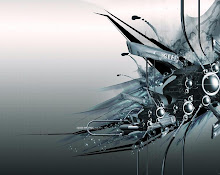Machiavelli is the real politician. I may be accredited with perpetuating the ideas of Realpolitik, but it is he who has shown me the way. In all my years of manipulating my friends and foes I have looked to Machiavelli for guidance every time. The Prince, or Il Principe, has shown me a glimpse into the past so that I may look to the future, my future, Prussia’s future. The disunity of Italy during the time of Machiavelli is very similar to the disunity of the many German states of our time. I found his advice about how to control regions that were acquired through military force most useful during my many campaigns. The Prince is a handbook that I have taken very dear to my heart, it has shown me through tough times and proved itself most useful, I am proud to say that I am a Machiavellian and that I sleep with a copy of the prince by my bed at all times.
Machiavelli’s ideas make so much sense. Politics is like a game of chess, you can’t win by being noble or honest, you must feign your actions, deceive your opponent and use their moves against them. That is how I was able to beat the Austrians in the Austro-Prussian War. I knew that Prussia had to completely control the Northern part of the German Confederation, and this meant removing the Austrians from German affairs once and for all.
Austria played right into my hands when they brought the Diet in to decide the Scheswig-Holstein issue. I told the Diet that by doing so, the Austrians had violated the Gastein Convention, The Austrians grew so infuriated that they declared war, this made it much easier to ally with the surrounding states such as Oldenburg and Brunswick, but most important to the whole plan was the alliance with Italy. The leaders of the Austrian Empire should have read The Prince, because then they would have known the dangers of controlling a part of Italy that had always been Italian. Italian unification proved to be a most useful tool in defeating the Austrians. Machaivelli would have been proud to see me deceive Napoleon III when I told him he might receive land around the Rhine. Unfortunately for Austria, Russia would not come to their aid. That is due to the fact that I am good friends with Alexander II and supported his repression of the Poles in 1863.
Another important lesson that I gleaned from The Prince was who to choose to surround me. I didn’t choose flatterers, or sloths, I chose men who could do their jobs well. Men like my War Minister Albrecht Graf von Roon and Chief of the General Staff Helmuth Graf von Moltke. Roon had been reforming the army under my direction for years and it was then that the Prussian army was able to match the might of any foe.
“A prince must have no other objective, no other thought, nor take up any profession but that of war.” This is true, and it is what I tried to follow. During the buildup to the war with Austria I had been getting Prussia ready. The army was reorganized under Roon and railways were built, supplies hoarded, and new weaponry made ready.
The war with Austria ended quickly when their troops were split between the Italian front and the northern front. After the historic battle at Sadowa we presented a very generous peace treaty in which the only lands taken away from Austria were Holstein. This was to prevent any further hostilities, lest we should need them later. If Germany had been oppressive and demanded large amounts of land or tribute, then Austria would remain resentful towards us, as told by Machiavelli. This war had accomplished exactly what it was supposed to, get Austria out of German affairs and expand Prussia. The German Confederation was dissolved in favor of the new North German Confederation. The key to this new Confederation was in the constitution that was written with The Prince in mind. Machiavelli’s ideas about how to control conquered lands were right, in the new constitution it allowed for the continuation of the local governments for each state but the King of Prussia would become the President and I the Chancellor. We, as the federal government, controlled the army and the foreign affairs and therefore we had the ultimate power. For as Machiavelli wrote, “the presence of sound military forces indicates the presence of sound laws.”
The Prince has provided me with an invaluable source of knowledge about the true nature of man. Man is generally selfish, but his loyalty for others can be won or lost. He is trustworthy during times of peace and prosperity, but will quickly turn to greed, deceit, and cunning during times of hardship and adversity. Most men admire courage, honor, and generosity in others but rarely show any of it themselves. It is these ideas about human nature that Machiavelli put forth to better educate those who will come to power and have a need for knowing the true soul of a man. I have believed the truths written in The Prince about military actions and the nature of man and they have served me well. It takes a prince, a man in control of the situation, to rule over other men. A prince who will take action and not be delayed by morals or vices, but who will seek a means to an ends. For the great questions of the day will not be decided by speeches and resolutions, but by blood and iron.
Subscribe to:
Post Comments (Atom)


No comments:
Post a Comment